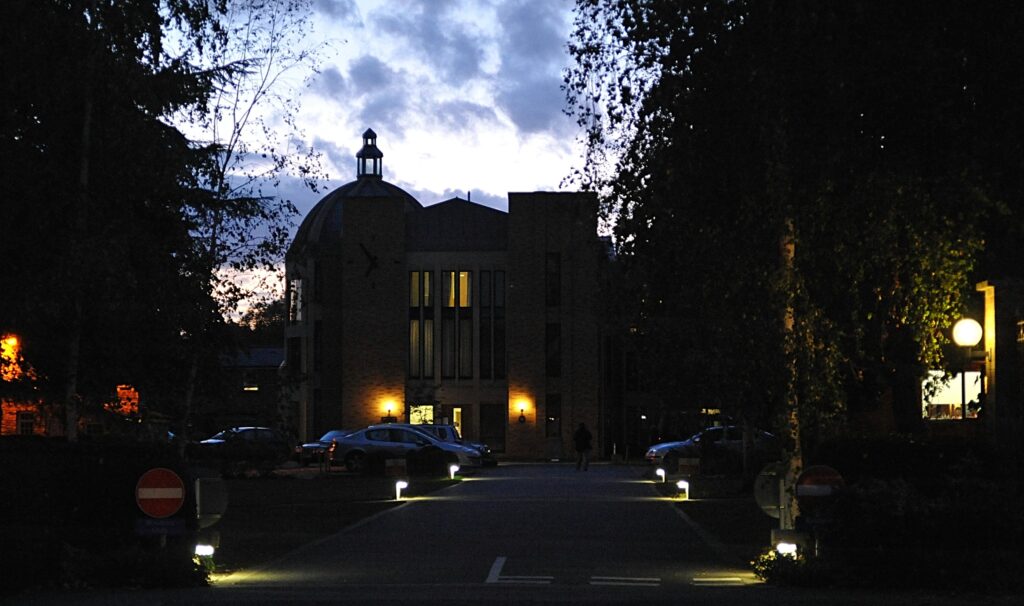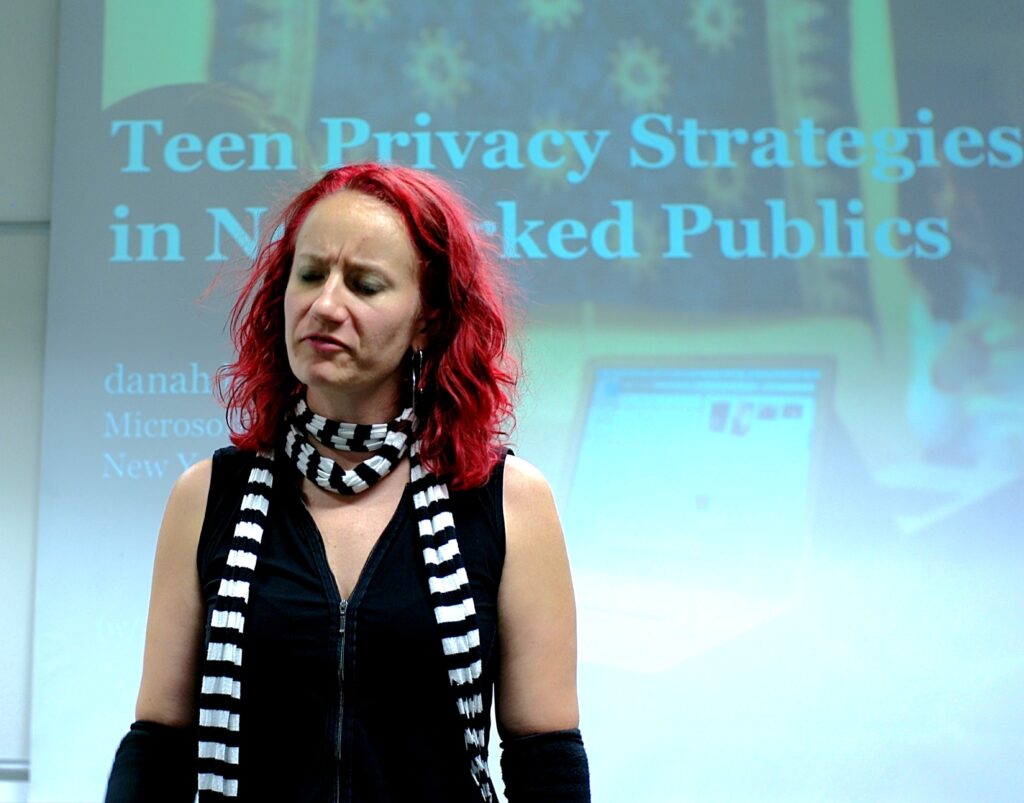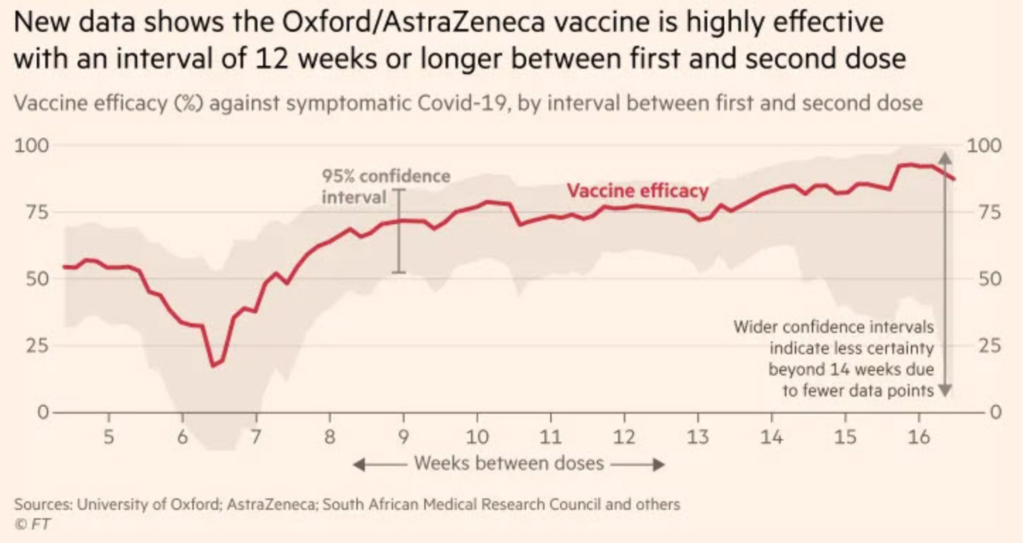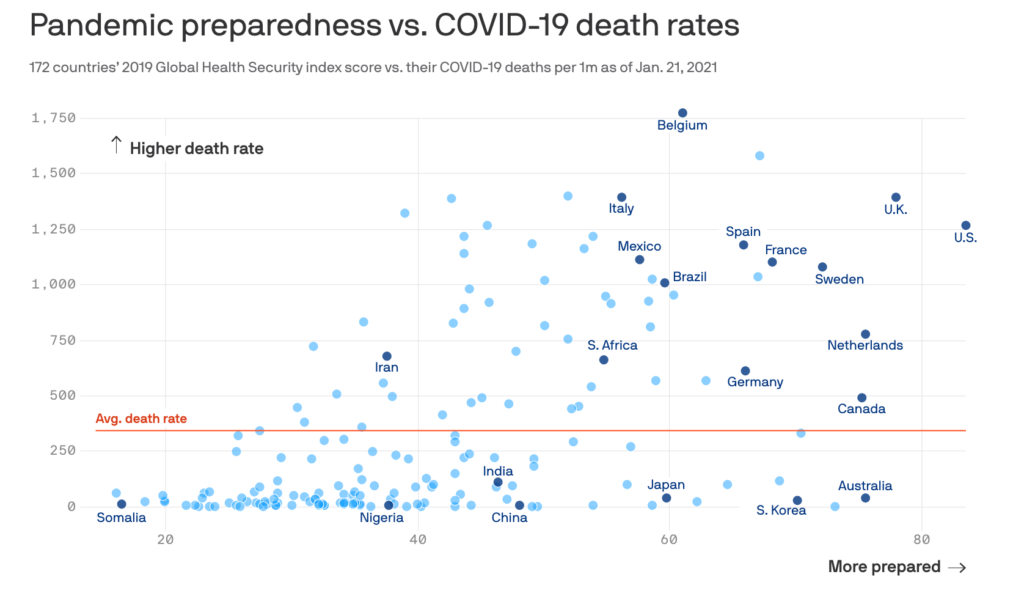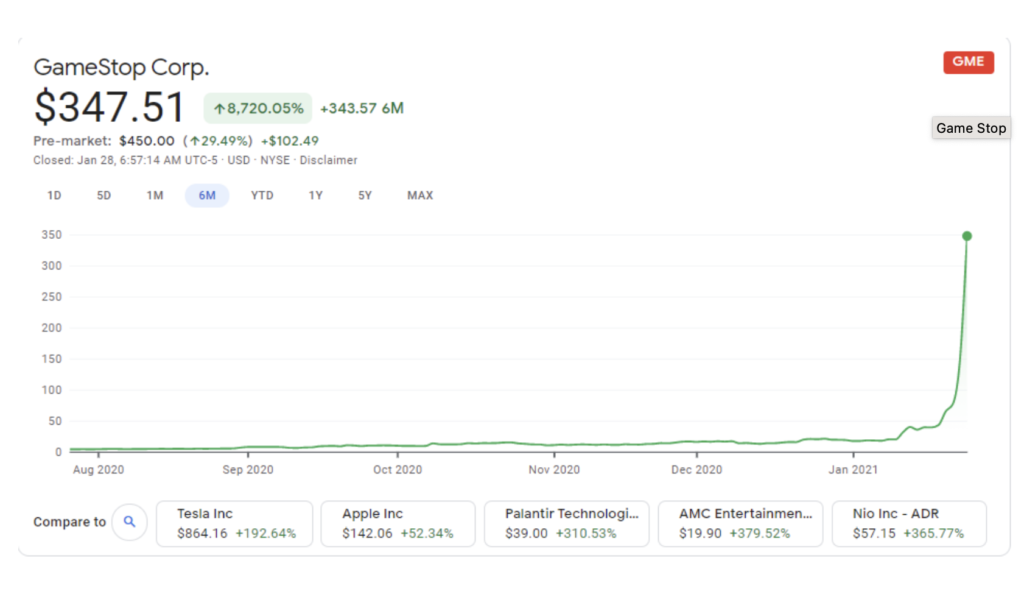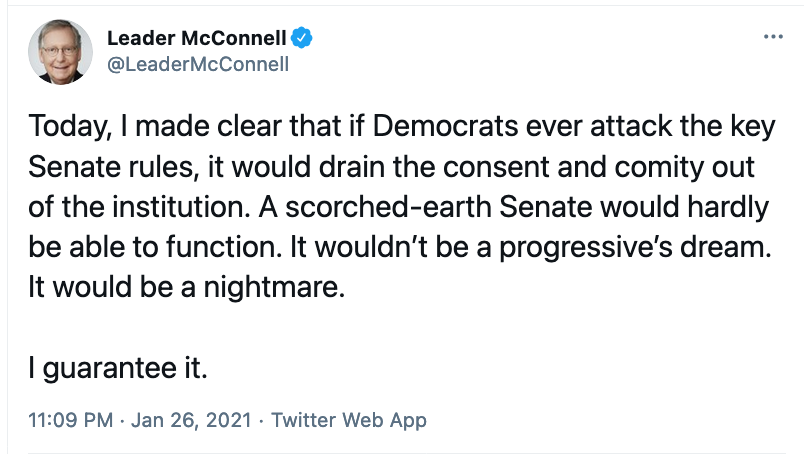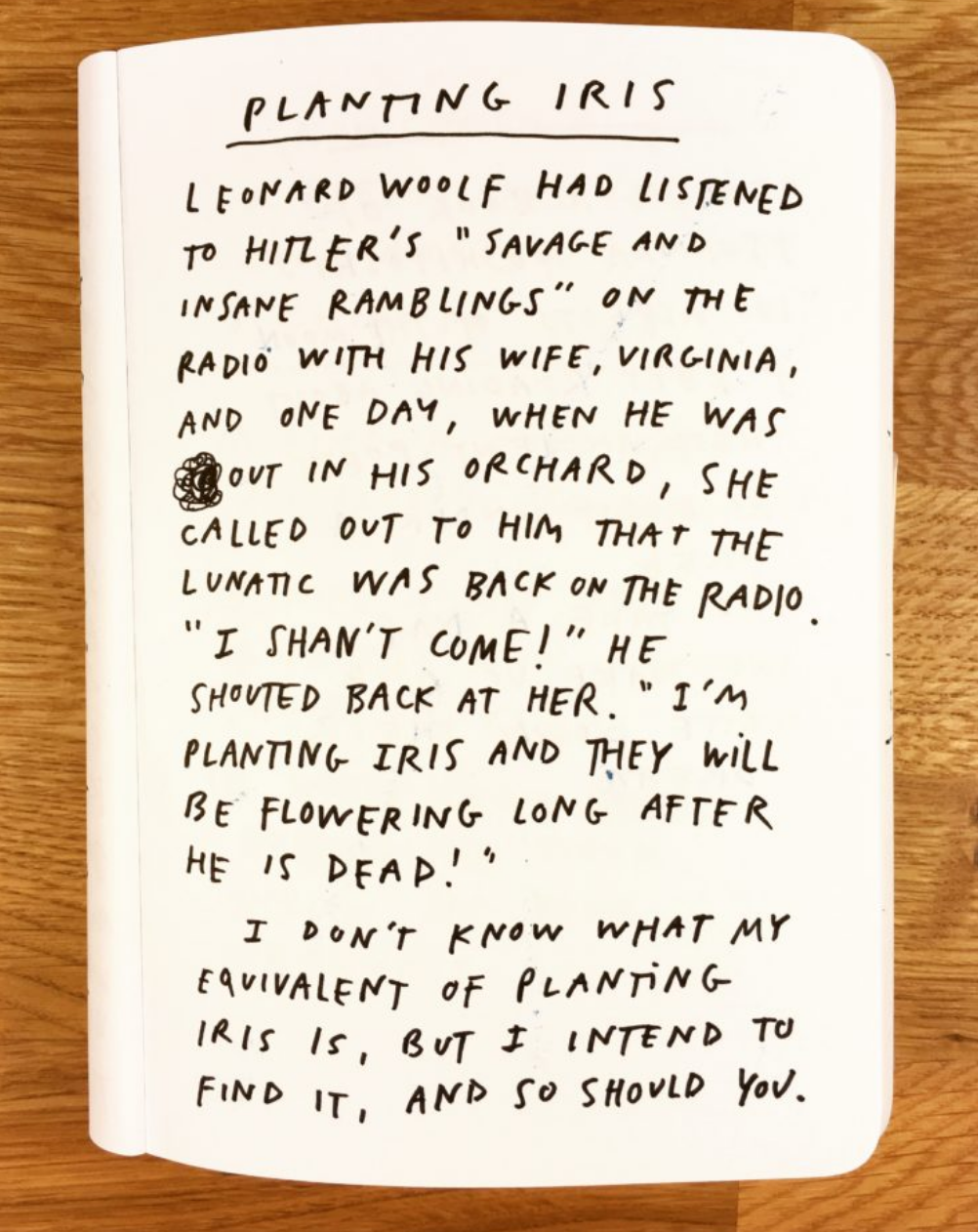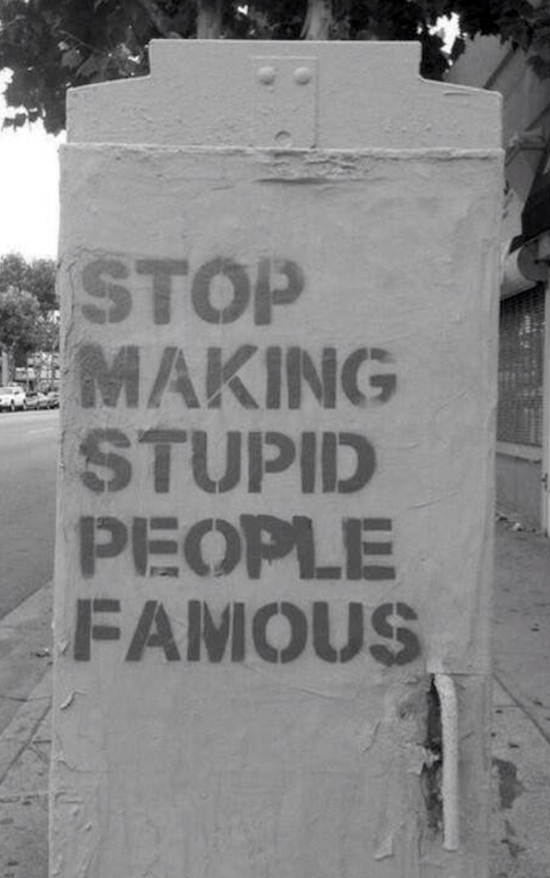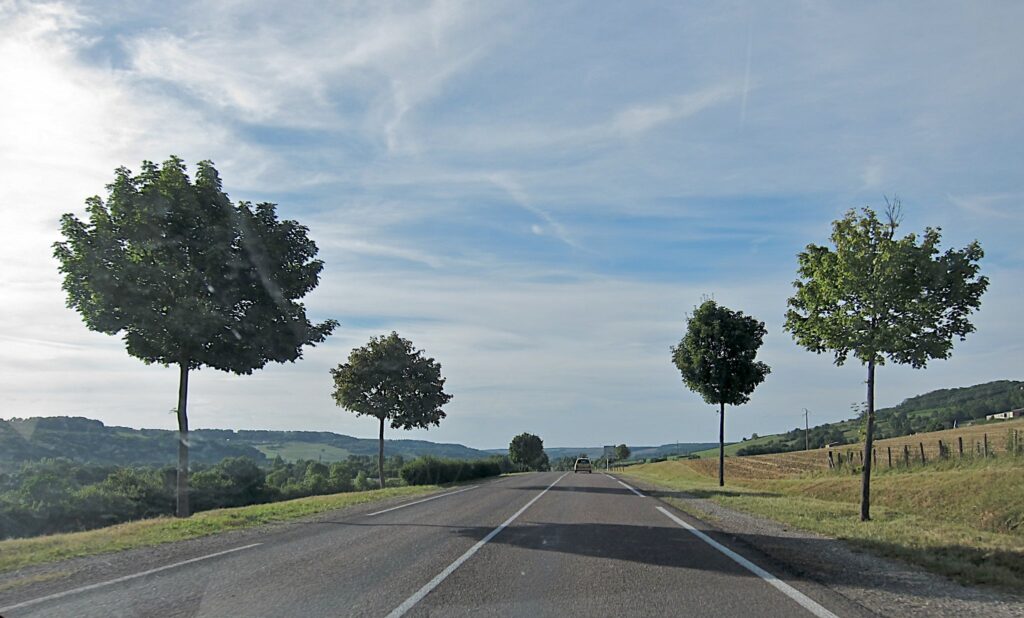College at dusk
Wolfson College, Cambridge. A shot that came from testing the low-light capability of the Nikon D700 a few years ago.
Side-effects and misconceptions
In yesterday’s edition I wrote about feeling oddly reassured by the mild side-effects of my Covid jab. They were, I felt, signs that the vaccine was also doing its stuff: waking up my immune system.
This prompted a nice email from Jonathan Rees, a reader who knows about this stuff:
John, better to say priming rather than waking . Immunology is about ‘self’ and ‘non-self’. Your immune system has just recognised something as a bit of ‘non-self’ — it doesn’t like it. It has noted it, seen it off, and kept its data on file (the fact that the non-self bit is ‘castrated’ allows this to be a pure learning experience)
On your second jab —or real infection —it will wake very quickly, jump out of bed, and launch the troops who are tanking up with engines ready to go.
Sort of like: starting a non M1 mac (priming) compared with starting an iPad — the latter is ready to go ‘instantaneously’. My only consolation is that I’m writing this on an M1 Mac! And I like Jonathan’s metaphor-switch.
Quote of the Day
In 2004, the New York Times asked Stephen Hawking: what is your IQ? He replied: “I have no idea. People who boast about their I.Q. are losers.”
HT to Helen Lewis
Hmmm… maybe that makes me a winner? I have no idea what my IQ is, though there are days when I wonder if it even reaches into double digits.
Musical alternative to the morning’s radio news
Randy Newman | You’ve Got a Friend in Me | Live with Chris Thile and friends
Long Read of the Day
The Capitalist Case for Overhauling Twitter
Scott Galloway is one of the smartest observers of the online world. This essay about Twitter’s failings is acutely perceptive, but goes beyond the usual critiques — it comes up with suggestions for how to both fix Twitter as a company and also to make it into a positive force for society. Galloway has skin in this game. As well as being an academic, he’s a tech investor. And he owns $10m of Twitter stock.
The basic problem is the business model — surveillance capitalism. Some service like Twitter would undoubtedly be a good thing for society. But it needs an honest business model. Subscriptions. I’d pay for a cleaned-up, non-bot-infested version. And I bet a lot of others would too.
Also, I’d enable people to block all retweets.
But, anyway, read Prof Galloway’s analysis and prescriptions.
Britain’s battery problem
A post-Brexit realisation has dawned on carmakers in the UK that their real challenge now is replacing traditional engine plants with battery factories. The immediate problem is that tariff-free trade with the EU relies on rules of origin of components in your product. If everything is made either in the UK or the EU, then no problem. If not.., big problems.
The difficulty is that the internal combustion engine is now doomed as a propulsion system for motor vehicles. By 2030 — or 2035 at the latest, ICE-propelled vehicles will be illegal. So an entire huge industry has to pivot to producing electric vehicles – EVs. But these need massive batteries — which are not manufactured in the UK, except in small quantities and power denominations. Accordingly, British car manufacturers who wish to continue making cars will have to build EVs. But if they wish to sell them to the EU, they will incur serious tariffs.
The only solution is for the UK to develop — pronto — massive battery-manufacturing capacity. That’ll take time and Britain is a late starter. As far as I can see, there’s only one factory making EV batteries in any quantity — the factory near Nissan’s car manufacturing plant in Sunderland. It makes the batteries for the short-range version of Nissan’s Leaf EV (but not for the latest, longer-range Leaf, which at the moment come from the US, I think).
And a start-up called — yes, you guessed it, Britishvolt — is planning to spend £2.6B on a ‘gigafactory’ (cliché du jour in the industry at the moment) at Blyth in the North East. First batteries are scheduled to roll off the production line in 2023. I’ll believe that when I see it.
Organic fascism?
Cory Doctorow has an interesting post prompted by Luke Carneal’s question, “Why Are Some Organic Farmers Turning to Reactionary Politics?”.
Carneal is an organic farmer with an interest in ideology and politics. He says he’s noticed a shift recently among some of his peers toward right-libertarian attitudes.
I don’t intend to suggest that a right wing perspective sways the majority of my fellow ecological farmers, but that underneath the sometimes true-to-life stereotypes of the socially liberal small-scale organic farm world, there is a marginal but growing tendency toward conservative views. If we look more closely at the philosophical motivations underpinning the modern back-to-the-land movement and the economic positioning of small organic farm operator-owners, it becomes clear that the emergence of libertarian attitudes amongst some members of this demographic is far from surprising – and should be expected to grow in coming years.
What’s driving this? Lots of things, probably. But,
The spiritual-philosophical ideology of the reactionary homesteader or small organic farmer shows itself in a number of recognizable modern anxieties – prepper subculture, government mistrust, a turn to new age medicine, anarcho-primitivism, and other manifestations of the scarcity feelings that find a home in both hippie lifestylism and right wing politics. Perhaps the individual who best embodies the ex-urbanite turn to new age homestead conservatism is Curtis Stone, a YouTube blogger who first rose to familiarity in the farm scene as an innovator of hyper-small-scale backyard vegetable farming. Going back to 2015 and 2016, a viewer will find his video channel populated exclusively by informative videos on no-till cropping systems, customer management, and other topics pertinent to the nuts and bolts of running a small farm venture near an urban center. I certainly gained much from these videos on my own path into bio-intensive small-scale agriculture. Stone also published a book, The Urban Farmer, in 2015, which still sits on my bookshelf. It contains helpful diagrams of irrigation sprinkler setups, soil amendment recommendations, and not a word on politics.
Jump forward to 2021, and half of Stone’s videos are now uploaded exclusively to BitChute, a right wing video hosting website, and contain titles such as “Refuge from the NWO (New World Order) within Private Societies,” “Don’t let fear and anxiety wear you down!” and “Talking collapse with Jack Spirko.”
Other links
- Observation of the day: Statusq.org “During lockdown, the frequency with which one needs to shave is inversely proportional to the quality of one’s webcam.” Link
- Bill Emmott interviews Alex Tabarrok. Genuinely interesting podcast. Link
- David Edgerton on Boris Johnson’s fatuous obsessions with ‘moonshots’. Link
This blog is also available as a daily email. If you think this might suit you better, why not subscribe? One email a day, delivered to your inbox at 7am UK time. It’s free, and there’s a one-click unsubscribe if you decide that your inbox is full enough already!

